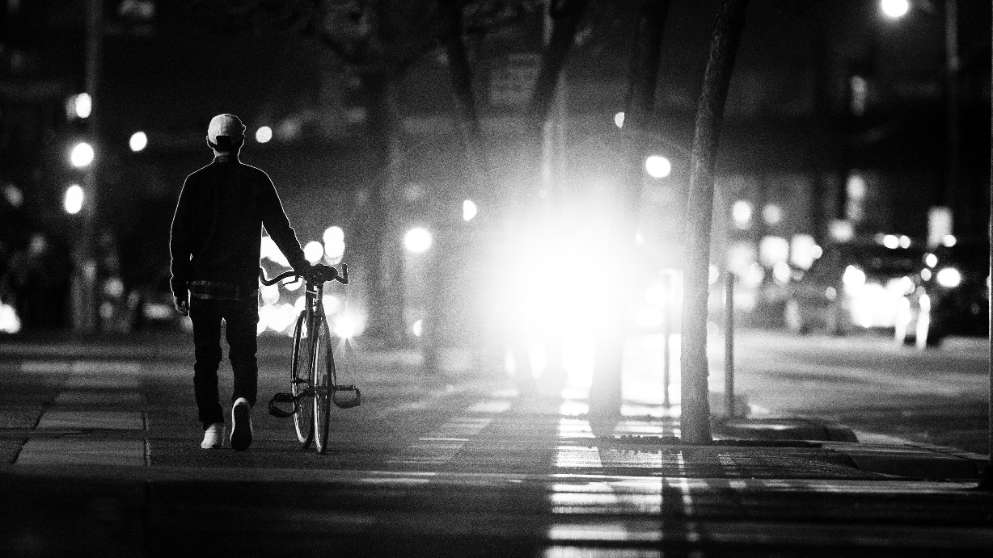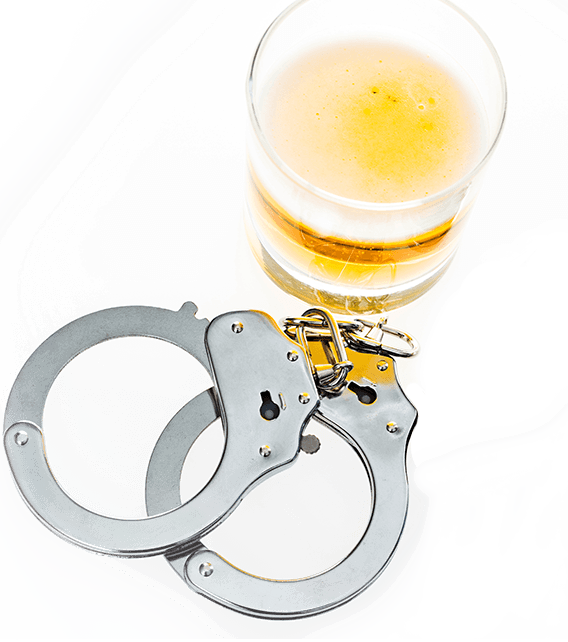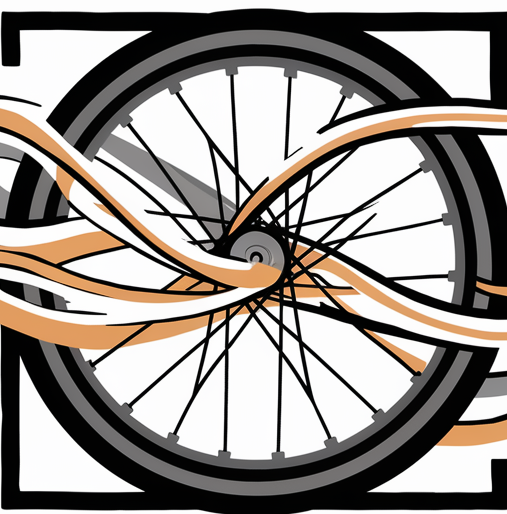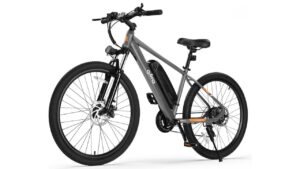Yes, you can get a DUI on a bicycle in Wisconsin. The law considers bicycles as vehicles.
Riding a bike while intoxicated can lead to legal consequences. Many people believe that DUIs only apply to motor vehicles. But, in Wisconsin, the rules are different. If you ride a bicycle under the influence, you face similar penalties to those for driving a car while drunk.
This might surprise some, but it’s crucial to understand the law to avoid trouble. In this blog, we’ll dive deeper into the specifics. We’ll explore what the law says and what you should know to stay safe and legal. Stay with us as we uncover the details.
Wisconsin Dui Laws
Understanding the nuances of Wisconsin DUI laws is crucial for anyone navigating the state’s roads. Whether you’re driving a car or pedaling a bicycle, it’s important to know how these laws might apply to you. Can you really get a DUI while riding a bike in Wisconsin? Let’s dive into the specifics to clear up any confusion.
Legal Definition Of Dui
In Wisconsin, a DUI, or Driving Under the Influence, is defined as operating a vehicle while impaired by alcohol or drugs. This includes having a blood alcohol concentration (BAC) of 0.08% or higher. The law focuses on impaired driving and the potential harm it can cause.
But what does “operating a vehicle” mean? Does it include bicycles? It’s a common question, especially for those who enjoy a drink or two before a leisurely bike ride. The answer lies in how the state defines a vehicle under its DUI laws.
Vehicles Covered Under Dui
Wisconsin’s DUI laws primarily target motor vehicles. This includes cars, trucks, motorcycles, and any other motorized transportation. However, bicycles are generally not classified as motor vehicles under these laws.
This means that technically, you cannot be charged with a DUI solely for riding a bicycle while intoxicated. But don’t breathe a sigh of relief just yet. You can still face other charges if your biking behavior endangers yourself or others.
Consider this: if you’re weaving through traffic or causing accidents, the authorities could charge you with reckless driving or public intoxication. So, while you might not get a DUI, the consequences of irresponsible biking can still be significant.
Next time you plan a biking adventure after a night out, think about your safety and that of others. Is it worth the risk? By staying informed and making smart choices, you can enjoy Wisconsin’s beautiful bike trails without legal troubles.

Credit: www.stangllaw.com
Bicycles And Dui Regulations
Bicycles and DUI regulations can be confusing. Many wonder if cycling drunk leads to a DUI. In Wisconsin, the rules are specific. Let’s explore how bicycles fit into DUI laws in this state.
Bicycle As A Vehicle
In Wisconsin, bicycles are considered vehicles. This classification affects how DUI laws apply. Cyclists must follow the same road rules as drivers. This includes obeying traffic signals and signs. Understanding this is crucial for safe cycling.
State-specific Rules
Wisconsin has unique DUI laws. They do not consider bicycles in DUI statutes. Driving under the influence applies to motorized vehicles only. Bicycles fall outside this legal scope. Yet, riding a bike drunk is still dangerous. It can lead to other legal issues. Police might charge cyclists with public intoxication. They could face fines or other penalties. Always ride safely and responsibly.
Consequences Of Dui On A Bicycle
Riding a bicycle while intoxicated in Wisconsin carries serious consequences. Though many think it’s harmless, the state takes it seriously. Understanding these consequences helps cyclists make informed decisions. Let’s explore the legal and personal impacts of a DUI on a bicycle.
Legal Penalties
In Wisconsin, cycling under the influence can lead to legal trouble. Authorities may issue fines, and you might face court appearances. The legal process can be lengthy and stressful. These penalties serve as a deterrent to prevent unsafe cycling. Knowing these risks can influence better choices on the road.
Impact On Personal Record
A DUI on a bicycle can impact your personal record. It might appear on background checks, affecting job prospects. This record can also influence insurance rates. A tarnished record can have lasting effects. Being aware of these consequences is crucial. It emphasizes the importance of safe cycling practices.

Credit: www.grievelaw.com
Comparing Bicycle Dui To Motor Vehicle Dui
Driving under the influence (DUI) laws apply to bicycles in Wisconsin. You might wonder how bicycle DUI compares to motor vehicle DUI. Although both involve impaired driving, the consequences differ.
Severity Of Penalties
A bicycle DUI often has lighter penalties than motor vehicle DUI. Riders might face fines or citations, unlike drivers who risk jail time. License suspension is not a concern for cyclists, making the impact less severe. Yet, cyclists can still face legal issues if impaired.
Differences In Enforcement
Law enforcement handles bicycle DUI differently from motor vehicle DUI. Officers might focus more on public safety than punishment for cyclists. They often prioritize education over arrest, aiming to prevent accidents. Motor vehicle DUI enforcement, however, involves stricter measures. Officers may conduct checkpoints and arrests to reduce risk.
Safety Concerns And Dui
Riding a bicycle under the influence raises safety concerns. Impaired cyclists can endanger themselves and others. Alcohol affects balance and coordination. These are essential for safe cycling. In Wisconsin, the law is clear. You can face penalties for biking under the influence. Understanding the risks helps promote safer choices.
Risks Of Biking Under Influence
Drinking impacts your judgment. This leads to poor decision-making. Reaction time slows down, increasing accident risks. You may misjudge traffic speeds or distances. These errors can cause serious accidents. Alcohol also affects your focus. Staying aware of surroundings becomes challenging. This increases the chance of collisions.
Public Safety Implications
Drunk biking affects public safety. Cyclists share roads with vehicles. An impaired cyclist can disrupt traffic flow. This puts other road users in danger. Accidents can result in injuries or fatalities. Emergency services may need to intervene. This strains public resources. Communities must prioritize safe biking practices.

Credit: m.youtube.com
Legal Precedents In Wisconsin
Understanding the legal precedents concerning DUI charges on bicycles in Wisconsin can be quite intriguing. While many might assume that DUI laws only apply to motor vehicles, Wisconsin’s legal framework offers a different perspective. Here, we delve into the notable cases and judicial interpretations that have shaped this unique aspect of the law.
Notable Cases
Wisconsin has seen some interesting cases where individuals faced DUI charges while biking. One such case involved a cyclist named John, who was stopped after swerving on a local street. Despite being on a bicycle, John was charged with a DUI, sparking debate about the law’s application to non-motorized vehicles.
Another case spotlighted a similar scenario where a cyclist was arrested after a night out. The court’s decision to uphold the charge highlighted the state’s stance that public safety is paramount, regardless of the vehicle type.
These cases have set a precedent that DUI laws can extend beyond cars and trucks. It’s a reminder that any vehicle, motorized or not, can be scrutinized under DUI statutes.
Judicial Interpretations
Judges in Wisconsin have provided varied interpretations when it comes to bicycles and DUI charges. While some argue that bicycles should be exempt, others maintain that public safety trumps all.
Judicial decisions often hinge on the intent of the law—to prevent harm and ensure safety. Courts have consistently emphasized that impaired cyclists pose risks similar to impaired drivers.
As a cyclist, you might wonder whether it’s fair to be held to the same standards as motorists. But if you consider the potential consequences of impaired biking, the judicial perspective becomes clearer.
Have you ever been out biking after a few drinks, assuming it was safer than driving a car? It’s crucial to rethink that stance. The implications of these legal precedents in Wisconsin highlight the importance of being sober on the road, no matter what you’re riding.
Alternatives To Biking Under Influence
Wisconsin law can issue a DUI for biking under the influence. Exploring safe transport options like public transit or ride-sharing ensures safety. Protect yourself and others by choosing responsible alternatives.
Riding a bicycle after drinking might seem harmless, but it poses risks not only to yourself but to others sharing the road. In Wisconsin, you can indeed be charged with a DUI on a bicycle. Before you decide to pedal after a night out, consider safer options. These alternatives not only prevent legal issues but also ensure everyone’s safety. Let’s explore some practical choices for when biking isn’t the best option.Safe Transportation Options
Choosing a safe way to get home is crucial. Taxis and rideshare services like Uber and Lyft offer convenient solutions. They’re just a tap away on your phone, ready to get you home safely. Public transportation is another reliable option. Check your local bus schedules beforehand, ensuring you’re familiar with routes and timings. It might be slower, but it’s a secure alternative. Don’t overlook designated drivers. Organize outings with friends and take turns being the responsible one. It’s a great way to ensure everyone enjoys the night safely.Preventive Measures
Planning ahead can save you from risky decisions. Limit your alcohol intake to avoid any impairment. Knowing your limits helps you stay in control. Consider bike locking systems at public venues. Secure your bike and opt for other transport if you’re impaired. This prevents you from making impulsive decisions. Social accountability plays a significant role. Encourage friends to watch out for each other. If someone’s had too much to drink, offer them a safe ride home. Reflect on personal experiences. Remember a time when you made a wise choice by avoiding biking under the influence? Sharing such stories can reinforce the importance of these alternatives. Have you ever thought about how a simple plan can change the outcome of your night? Preparing beforehand can make all the difference.Advocacy And Public Awareness
Advocacy and public awareness play a key role in understanding DUI laws. Many people are unaware that DUI laws can apply to bicycles in Wisconsin. Clear information and awareness can prevent potential legal issues and enhance road safety.
Campaigns And Initiatives
Several campaigns aim to educate cyclists about DUI implications. These initiatives often involve local law enforcement and safety organizations. They hold events and distribute materials about safe cycling practices. Social media and community forums are also used to spread the word.
Educational Resources
Educational resources help cyclists understand their legal responsibilities. Websites offer comprehensive guides on DUI laws for bicyclists in Wisconsin. Interactive workshops and seminars are also available for deeper learning. These resources focus on legal obligations and safety tips for cyclists.
Frequently Asked Questions
Can You Get A Dui In Wisconsin On A Bike?
In Wisconsin, you cannot get a DUI for riding a bike. State law applies DUI only to motor vehicles. However, you can still face fines or citations for unsafe biking behavior. Always ride safely and follow traffic rules to avoid penalties.
In What State Can You Get A Dui On A Bicycle?
Many U. S. states, including California and Florida, can charge you with a DUI on a bicycle. Laws vary by state, and penalties differ. Always check local regulations to ensure compliance and safety while cycling. Riding under the influence can lead to fines, legal issues, and endanger public safety.
What Are The Penalties For Dui On A Bicycle?
Penalties for DUI on a bicycle vary by state. They may include fines, license suspension, or mandatory education programs. Some states treat it similarly to motor vehicle DUIs, while others impose lighter penalties. Always check local laws to understand specific consequences.
Riding responsibly prevents legal issues and ensures safety.
Can You Get A Dwi On An Electric Bicycle?
Yes, you can get a DWI on an electric bicycle. Laws vary by state, but many apply DWI rules to all motorized vehicles.
Conclusion
It’s clear that cycling under the influence in Wisconsin is risky. Bicyclists need to stay sober and alert. Following local laws ensures safety for everyone. Riding responsibly protects you and others. Always be aware of your surroundings. Avoid alcohol before cycling.
Make smart choices. Wisconsin values safety on all roads. Even on two wheels. Remember, safety first. Keep your ride enjoyable and legal. Stay informed and ride safe!



